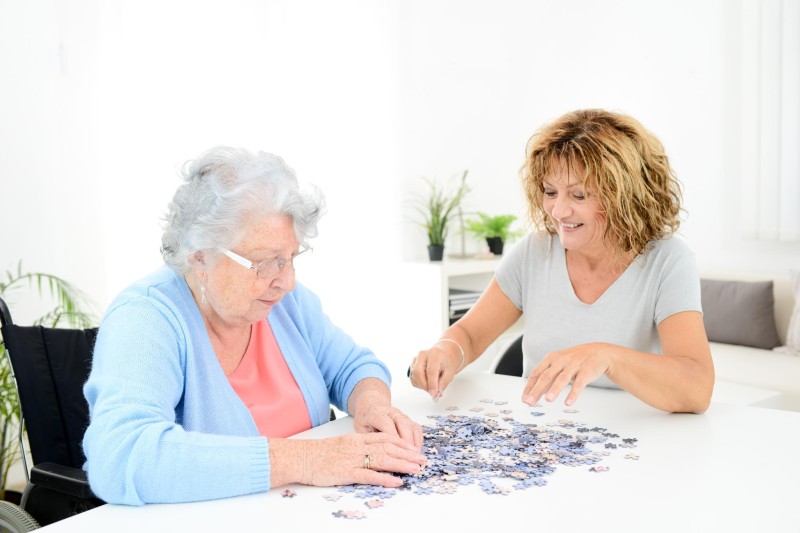Resources
Mobile Resource Library Tabs
Filters
Search
Categories Navigation
Asset Publisher
Content with Target Audience Family Members or Friends .
Resources

4 Memory Boosting Brain Exercises for Older Adults
Most of us know that physical exercise is important to keep the body healthy and strong, but what we may not know is that our brains also benefit from exercise. Keeping our brains active and alert can often be essential to our wellbeing as we transition into older adulthood.
Read MoreBy Julie Hayes | 06/15/2020

Understanding and Managing an Older Loved One’s Urinary Incontinence
As we age, changes in our body can reduce how much urine our bladder can hold. The stream can become weaker and can cause us to feel the urge to urinate more often. Some people suffer from overactive bladder, which is characterized by urinary urgency and frequency. Others may also suffer from urinary incontinence, which is the loss of bladder control. It can range from leaking a small amount of urine, to having very strong urges to urinate that are difficult to control. Incontinence may be either a chronic or temporary problem.
Read More06/15/2020

How to Keep an Older Loved One Supplied with Necessities during the COVID-19 Pandemic
With staying at home and practicing social distancing being recommended as two of the most important methods of “flattening the curve” and keeping safe during the current COVID-19 pandemic, most of us have had to rethink the ways we go about our day-to-day lives. Even basic trips to the convenience store or supermarket involve new levels of preparation and caution than before. This can be an additional challenge for those who have to think about providing for a vulnerable loved one, whether they are caregivers or just taking on a bigger role to assist their loved one and keep them safe at this time.
Read MoreBy Julie Hayes | 05/18/2020

Why Won’t My Parents Just Stay Home?: Older Adults and COVID-19 Restrictions
Older adults as an age group have been particularly resistant to changing their behaviors in response to the COVID-19 pandemic. So often faced with age-related limitations on what they can do, they fight back against what others tell them to do, even if it is in their best interest. Moreover, at the end of the day, they many not see themselves as high-risk because they simply do not perceive themselves as “old.”
Read MoreBy Lisa Weitzman | 05/18/2020

Diabetes and Hypertension as Risk Factors for Kidney Disease in Older Adults
For older adults, the risk for kidney disease especially critical as studies show that diabetes can increase with age due to factors such as obesity, decreased activity, hypertension and insulin resistance. Because of medical advances in the treatment of diabetes, patients with the disease are living longer, thus leading to more diabetes-related complications, such as kidney disease.
Read More05/18/2020
